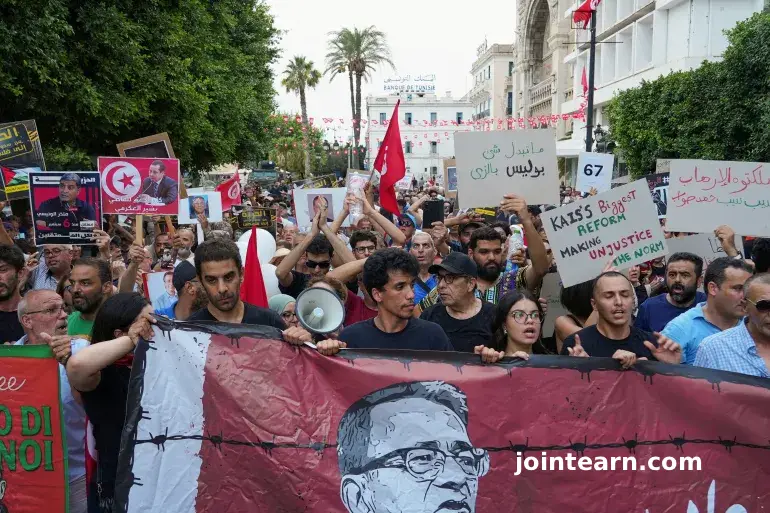
A Tunisian court has sentenced Ahmed Souab, a prominent lawyer and vocal critic of President Kais Saied, to five years in prison, marking a significant escalation in the North African country’s crackdown on opposition figures, journalists, and civil society. Rights groups warn that the ruling represents a dangerous precedent for the independence of the judiciary and freedom of expression in Tunisia.
Details of the Sentencing
Souab, 68, received an additional three-year sentence of “administrative supervision” following his arrest in April for criticizing the legal process in a high-profile trial involving opposition leaders and prominent political figures.
- Defence lawyer Yosr Hamid reported that Souab’s trial on anti-terrorism charges lasted only seven minutes.
- Souab was not allowed to appear in court on the day of sentencing and declined to testify via videolink.
- The lawyer faced around a dozen charges under Decree Law 54, which criminalizes “false information” and broadly targets dissent.
Hamid described the trial as lacking “fundamental grounds for a fair hearing,” warning that the ruling sets a troubling precedent for legal due process in Tunisia.
Context: Tunisia’s Political Crackdown
Since seizing full powers in 2021, President Kais Saied has intensified efforts to control political opposition, the judiciary, and civil society. The crackdown has particularly targeted:
- Opposition parties, including Ennahdha, and their leaders, such as Rached Ghannouchi and Hichem Mechichi.
- Lawyers, journalists, and trade unionists accused of conspiracy or spreading “fake news.”
- Civil society organizations like the Tunisian Forum for Economic and Social Rights and the Association of Democratic Women, often justified under administrative audits linked to foreign funding.
Souab’s arrest came after he publicly criticized the trial process for approximately 40 opposition figures, accusing authorities of putting undue political pressure on judges.
Widening Crackdown on Independent Media
On the same day as Souab’s sentencing, Tunisian authorities suspended Nawaat, a leading independent investigative media outlet, for one month.
- Nawaat is known for reporting on corruption and human rights abuses.
- Authorities cited financial audits as justification, but rights advocates argue the move is aimed at silencing dissent.
- The National Union of Tunisian Journalists condemned the suspension as a “dangerous escalation” in efforts to muzzle press freedom.
Public Reaction and Protests
Hundreds of protesters gathered outside the court on Friday, chanting slogans against repression and holding photos of Ahmed Souab. Observers note that the widening crackdown has fueled growing discontent among Tunisians concerned about political freedom, judicial independence, and human rights.
Legal and Human Rights Implications
- The brief trial and heavy sentencing underscore concerns over judicial independence in Tunisia.
- Critics warn that targeting lawyers, journalists, and civil society organizations threatens the country’s post-revolution democratic institutions.
- Appeals related to the broader “conspiracy” trial, where sentences reached up to 74 years, are scheduled for November 17.
Souab’s case is seen as part of a broader strategy to silence opposition voices and consolidate power under President Saied, drawing international attention and criticism.
Conclusion
The sentencing of Ahmed Souab and the suspension of independent media outlets highlight a deepening authoritarian trend in Tunisia. Human rights advocates warn that continued repression of lawyers, journalists, and civil society threatens democratic governance, free expression, and the rule of law in the country.
Observers emphasize that the international community must monitor these developments closely to safeguard human rights and judicial independence in Tunisia


Leave a Reply